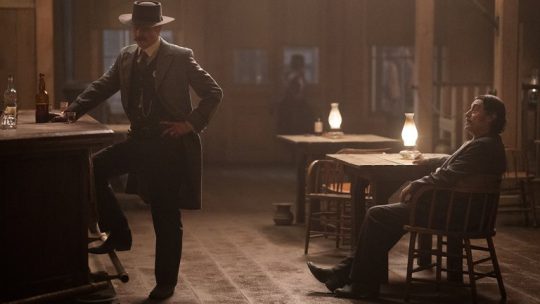More than decade after the conclusion of the critically-acclaimed HBO series Deadwood, a finale has been released that brings the gold-rush era drama to a close. The Deadwood film premiered on HBO last week, and fans of the show will find much to remember and appreciate in this conclusion.
Much remains familiar in Deadwood a decade later; the surviving characters are older, but the dynamics and cadences of their interactions remain. The series concluded with an epic clash between the forces of progress and change and the established order in the camp. The film picks up these conflicts again, reintroducing George Hearst, who returns to Deadwood as a senator from California but the same instrument of ‘inevitable’ progress that he was when he left.

The movie has the same strengths as the show, including the perennial themes of love, liberty, law, and order. For a review of the original series that touches on these elements, see “A Law Beyond Law: Life Together in Deadwood.”
And even though the show is set more than a century ago, the clash between crony capitalists and a truly free market economy on full display has much that resonates today. It is relatively rare to see a banker cast in heroic terms, for instance, but that’s precisely what we see in the film. A bank, rooted in the community and in relationship with the town, becomes a key bulwark against tyranny.
The Shakespearean vulgarity of the dialog remains, and sometimes borders on the Yoda-esque (“Shot in my arm, I have been!). In its conclusion, Deadwood remains an extended and worthwhile meditation on power, and the special dangers of the confluence of political and economic power, and the concomitant need for virtuous and principled structures of individual and communal responsibility.

